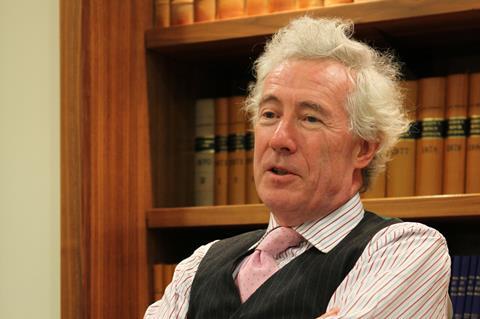Interim measures by the European Court of Human Rights including the one stopping deportation flights to Rwanda are not binding on governments, human rights law experts claim in a report published by a centre-right thinktank today. Rule 39 and the Rule of Law, published by Policy Exchange’s Judicial Power Project, concludes that the Strasbourg court’s ‘rule 39’ procedure was never approved by member states and that the government should challenge its lawfulness ‘robustly’.
An intervention by a Strasbourg judge under the rule 39 procedure last June stopped a deportation flight taking off for Rwanda.
In a foreword to the Policy Exchange paper, former Supreme Court justice Lord Sumption describes the legal basis of the power as ‘slender’ and warns that 'if interim measures are available in cases like this, it is probable that no legislative scheme for the prompt removal of illegal immigrants can succeed'.
The Illegal Migration Bill, at committee stage in the House of Lords this week, would grant the government the explicit power to ignore rule 39 injunctions. However the Policy Exchange report’s author, Richard Ekins, professor of law and constitutional government in the University of Oxford, said that the UK is already legally entitled to refuse to comply.

According to the report, the European Convention on Human Rights does not empower the Strasbourg court to grant interim relief. While member states have an express obligation to comply with a 'final judgment' of the court, they have no obligation to comply with an interim ruling. The report states that a rule 39 measure is an act of a single judge, often made without a hearing and without giving reasons. 'The UK has a strong argument that in trying to force states to comply with Rule 39 measures the Strasbourg court is acting beyond the scope of the ECHR and thus lacks jurisdiction.'
In his foreword, Sumption writes: 'The human rights convention, which is the only instrument that the state parties have actually agreed, does not, on the face of it, empower the Strasbourg court to enlarge its own jurisdiction through its internal procedural rules. It confers binding force of some final rulings of the court, but not on interim measures.'
Speaking in Dover this morning, prime minister Rishi Sunak said the government's 'unprecedented' legislation would 'make it clear that if you come here illegally you will be detained and removed in weeks – either to your own country or to a safe third country like Rwanda'.
This article is now closed for comment.



























10 Readers' comments